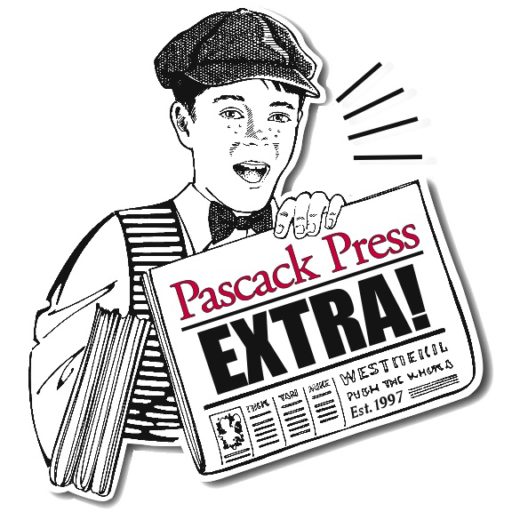
[slideshow_deploy id=’899′]
BY JOHN SNYDER
OF PASCACK PRESS
TOWNSHIP OF WASHINGTON, NEW JERSEY — It’s not quite the same as finding a forgotten $1 million check used as a bookmark after 30 years, but the township does have that much cash in a school sale fund it created in 1988.
In round numbers there also are at least four apparently untasked reserves with $40,000 to $54,000 in them; some $200,000 might stand to be scrubbed from old ordinances; and there are trusts (unemployment, for example) that councilmembers suggested are overfunded.
Another $200,000 was recently scrubbed from old ordinances.
At a special meeting on the morning of Saturday, Feb. 10, the governing body set out to settle, once and for all, what it can draw down and apply to surplus for savings and capital improvements.
The council is eager, for example, to fund a new intersection at Washington Avenue and Pascack Road, work on which is restarted after the county nixed a plan the township sat on for a decade.
The council’s first attempted ordinance of the year sought an appropriation for that work but the measure fell apart as poorly written and underfunded.
Mayor Peter Calamari told Pascack Press he will explore using part of the money to pay down the township’s portion of the school board’s middle school expansion bond.
“I didn’t agree with it sitting idle for so long, but since it did, at this point I’d like to see it pay off debt to expand the school,” he said.
The purpose of the council’s morning meeting, available to watch via WCTVNJ, was to start hammering out the expense side of a proposed 2018 budget, which will fund the government and its approved projects.
The council has been aware of money the town evidently squirrelled away over the years, as have its auditors, though little was done about it.
Councilman Robert Bruno campaigned for mayor in part on a pledge to sort out the town’s finances. The job went to Calamari.
“The money’s been sitting here for years. Never been used. And when we have discussions, we always say, ‘Well, is it earmarked for something, is it not earmarked for something?’” Bruno, who led the Feb. 10 meeting, said of the school proceeds.
The old high school, then middle school, at Third Avenue and Mill Street, was sold in 1988 and gave way to townhouses in 1994.
According to Tax Collector and Chief Finance Officer Ashley Morrone, evidence suggests the school fund likely was earmarked.
“If it wasn’t earmarked it would have been just rolled into surplus years ago,” she said. She said she’d look into it.
Borough Administrator Mary Anne Groh put in that former Mayor Janet Sobkowicz told her the money was intended to be used for a big capital project.
“You certainly have a bunch of them on the table right now,” Groh said.
Of the school funds, Council President Michael DeSena concurred with Calamari and his fellow council members.
“We’re not here as a spending spree. We just want to clean this stuff up and know exactly what the amount of money is,” he said.
Councilman Steve Cascio said the reserve was proof that the township was “double taxing” residents on the cash.
“We’re not in a profit-making mode and the government never should be, and right now that’s what the Township of Washington government is. They’ve made a profit of—I don’t know what the number is, I’ll just say a couple of million dollars—and that shouldn’t be,” he said.
“Zero out the balance, spend it on what we need to spend it on, and from here forward tax the residents on what we need to operate. Nothing more,” he said.
According to Councilman Michael Ullman, the fund draws interest—but not much.
“It’s basically zero at this point, based on current rates,” he said.
In a nearly three-hour meeting, the governing body also approved or flagged line items large and small for smaller departments.
The officials are setting meetings with chiefs of the big-ticket departments—police, fire, and municipal facilities—to review their budget requests.
They met with the police department Feb. 20, will meet with the DMF Feb. 26, and will meet with the fire department March 3.
Among the items discussed Feb. 10 were entries concerned with:
• Preparing for police union contract talks. The council took up whether borough attorney Kenneth Poller should carry out those negotiations on his own, as he has before, or else hire a specialist.
• Setting a “master plan” for municipal facilities, several of which have been identified as in need of repair or replacement.
• A rise in engineering costs.
• Apparently anticipating increased spending on affordable housing-related activities possibly related to litigation.
• Encouraging professional development for town workers.
